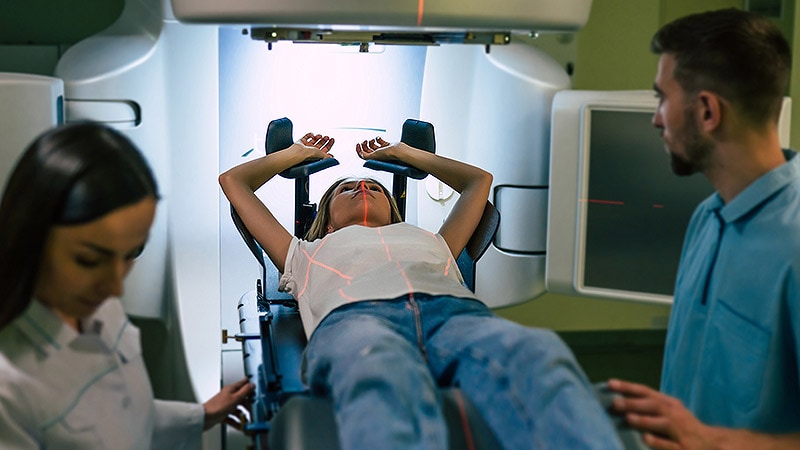Patients with non-small-cell lung cancer (NSCLC) with actionable tumour alterations should receive targeted therapies and chemotherapy before considering immune checkpoint inhibitors (ICI), data from the IMMUNOTARGET registry suggest.
The IMMUNOTARGET registry collected data from 551 patients treated at 24 centres in 10 countries. The data were evaluated for clinicopathologic characteristics and outcomes for ICI therapy: best response (Response Evaluation Criteria in Solid Tumors [RECIST] 1.1), progression-free survival (PFS), and overall survival (OS) from ICI initiation. The primary endpoint was PFS under ICI.
Molecular alterations were recorded for KRAS (n=271), EGFR (n=125), BRAF (n=43), MET (n=36), HER2 (n=29), ALK (n=23), RET (n=16), and ROS1 (n=7), and one patient was found to have multiple drivers.
The objective response rate by driver alteration was highest for KRAS (26%), followed by BRAF (24%), ROS1 (17%), MET (16%), EGFR (12%), HER2 (7%), RET (6%), and ALK (0%).
In the entire cohort, median PFS was 2.8 months and median OS was 13.3 months. The best response rate was 19%.
In a subgroup analysis, median PFS was 2.1 months for EGFR, compared with 3.2 months for KRAS, 2.5 months for ALK, 3.1 months for BRAF, 2.5 months for HER2, 2.1 months for RET, and 3.4 months for MET.
PFS was positively associated with PD-L1 expression in the presence of KRAS and EGFR alterations and with smoking status for BRAF and HER2 alterations.
The authors concluded that outcomes with ICI monotherapy were consistent with ICI registration trial findings in the KRAS-subgroup but were inferior for patients with actionable driver mutations.
They advised that ICI should thus “only be considered after exhaustion of targeted and standard therapies.”



